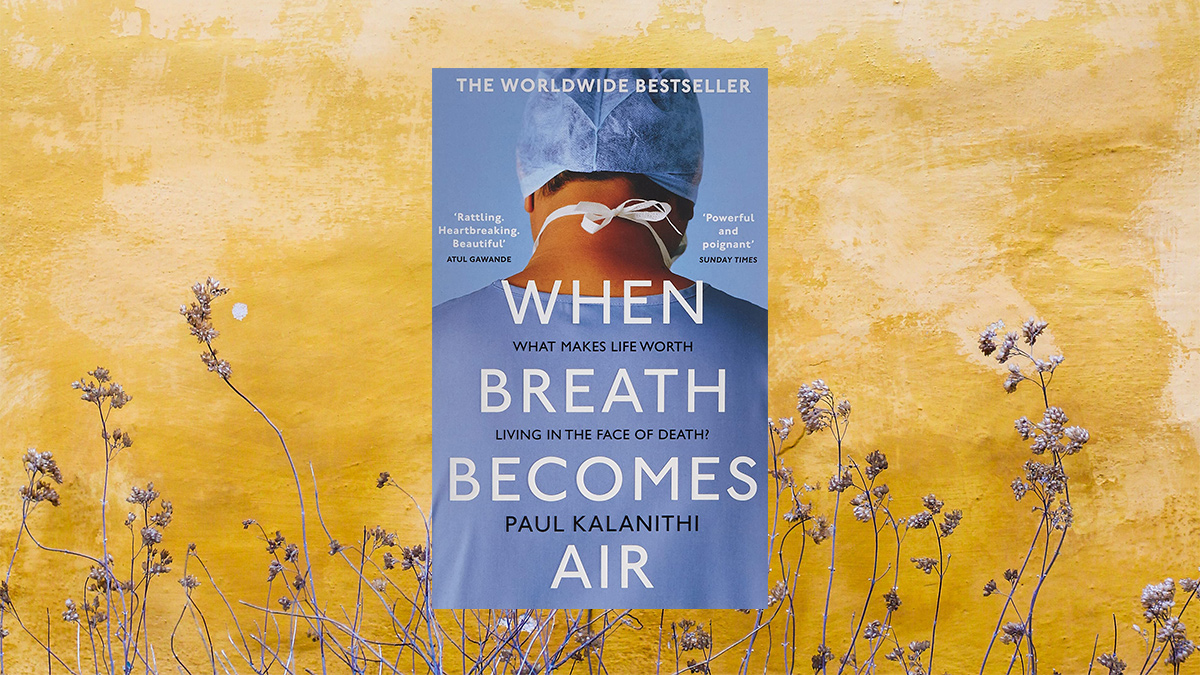When breath becomes air
A brilliant, inspiring exploration of how to live a meaningful life in the face of death.
Makliya Mamat / March 14, 2023
I heard about Paul Kalanithi’s book, When Breath Becomes Air, long before I actually read it. I knew that Bill Gates and Anne Patchett both raved about it.
At the age of 36, Kalanithi was a neurosurgeon reaching the end of his residency at Stanford University when he found out that he had stage 4 lung cancer. When he was younger, Kalanithi was a voracious reader and dreamed of becoming a writer, but because he was raised in a family of doctors, he recognized the importance of medicine to society. His double course weights in literature and science during his undergraduate and doctoral degrees prepared him for a career as either a writer or a doctor.
As a writer, Kalanithi would merely be a passing witness of the moral complexity that come with mankind; whereas, as a doctor, he would be dealing with life and death on a daily basis. He made the decision to attend medical school and pursue a profession in neurosurgery, one of medicine’s most demanding specialties.
During the course of the book, the author explores the complexities of the human psychology, the complexities of the human body, and the complexities of the human mind. He puts the readers in the doctor’s position and demonstrates how, for him and many of his colleagues, this is more than simply a job; it is a calling that he is compelled to embrace. It is obvious that Kalanithi was a skilled neurosurgeon who would have attained the pinnacle of his profession globally. Nevertheless, he was also a kind and compassionate doctor—the kind of doctor you would want to have if you needed brain surgery.
The oncologist for Kalanithi refused to talk about survival rates or life expectancy. She gave Kalanithi the option to live the life he desired and pursue his interests, but these directives did not provide him with any clarity. He struggled with deciding in which direction to direct his ambitions, just like everybody else trying to live their best life. He would return to medicine if he only had 20 years to live. Five less and he would start writing. Throughout the first course of treatment, which was able to reduce the tumor’s size and enable him to go back into surgery, this question followed him about constantly.
His life was going well—he was expecting a child and was almost out with his residency—when a scan revealed another malignancy. Kalanithi understood it was the beginning of the end in spite of what everyone else was saying. He retired from medicine to write and spend more time with his family.
Kalanithi’s book was published posthumously, 10 months after he passed away, and ends with a tear-inducing passage written by his wife, Lucy. Now a single mother, Lucy describes visiting her husband’s grave with their daughter and teaching her about the father she will never know.
When Breath Becomes Air is a beautifully written book that shows us that we can’t control the matter or timing of our death, but we can choose how we approach it. It took me awhile to get to this book, and given our finite time on this planet.

Contents
Newsletter
- Updates from Makliya Notes will be delivered to your inbox.

